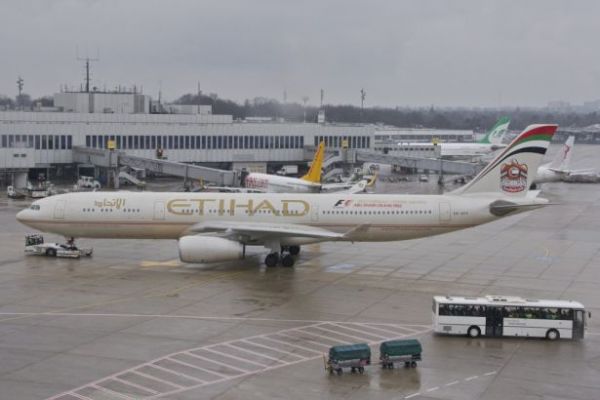United Continental Holdings won’t fire anyone over last week’s incident in which a passenger was dragged off a plane, an episode that sparked worldwide condemnation of the airline.
“It was a system failure across various areas, so there was never a consideration for firing an employee or anyone around it,” Chief Executive Officer Oscar Munoz said Tuesday on a conference call with analysts. He acknowledged “lots of conjecture” about his own fate at the nation’s third-largest carrier and said “the buck stops here.”
Munoz faced Wall Street for the first time since David Dao’s forcible removal on April 9, apologizing again for the airline’s handling of the incident. So far, corporate customers have been “supportive” of United during the public relations crisis, President Scott Kirby said on the call to discuss first-quarter earnings. It’s too soon to tell if the bad publicity hurt bookings, the carrier said.
Munoz plans to travel to China in a couple of weeks on a previously scheduled business trip and will meet with officials there about their concerns over the incident, he said. The story spread rapidly on social media in the Asian nation, which is a critical market for Chicago-based United.
Capacity Concerns
After getting pilloried over the scandal, Munoz faced skepticism from Wall Street over his intention to boost growth in flights and seats. Analysts asked why the company wasn’t instead trying to boost profit margins, which fell in the first quarter and trail those of Delta Air Lines Inc.
The shares fell 4.3 percent to $67.71 at 3:21 p.m. in New York after sliding as much as 4.5 percent, the biggest intraday drop in a month.
The questions highlighted concern among United’s investors as the carrier plans to boost seating capacity by as much as 4 percent across its network this quarter, including a domestic increase of as much as 5.5 percent. Munoz told analysts that the expansion is needed to win back the company’s “natural share” of the market at big hub airports including in Newark, New Jersey.
“Market share is not a conversation we have in this room or with our board,” Munoz said on the conference call. “It is all about margin.”
United spooked some investors and analysts in February when it announced it would add 47 round-trip flights in the U.S. starting this summer as it tried to boost connections at its major hubs. In recent years, United has been among the most conservative U.S. airlines in adding seating capacity, and it boosted capacity by only 1.4 percent last year.
Shares fell about 8 percent in early March after analysts reviewing published flight schedules discovered that United wouldn’t offset the new flights with cuts elsewhere in its network.
“What folks are worried about here is that we saw the capacity increase domestically in the past month, month and-a-half,” Barclays Plc analyst Brandon Oglenski told Kirby on Tuesday. “The concern here is that maybe we’re a little bit more focused on market share than margins.”
Small Jets
Kirby said United was able to trim its capacity in the past partly by using small regional jets to fly between major markets, such as Newark to Atlanta, instead of using them to fly mostly to small markets such as Rochester, Minnesota. That wound up causing frequent travelers to switch to United’s rivals, Kirby said.
Part of United’s seating capacity increase this year will come from putting larger jets on those major routes, he said.
“Early on, we felt really good about how well this is working,” Kirby said. “It’s logical. This is not trying to go invade someone’s hub. This is about restoring United to where it should have been.”
News by Bloomberg, edited by Hospitality Ireland








